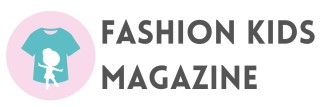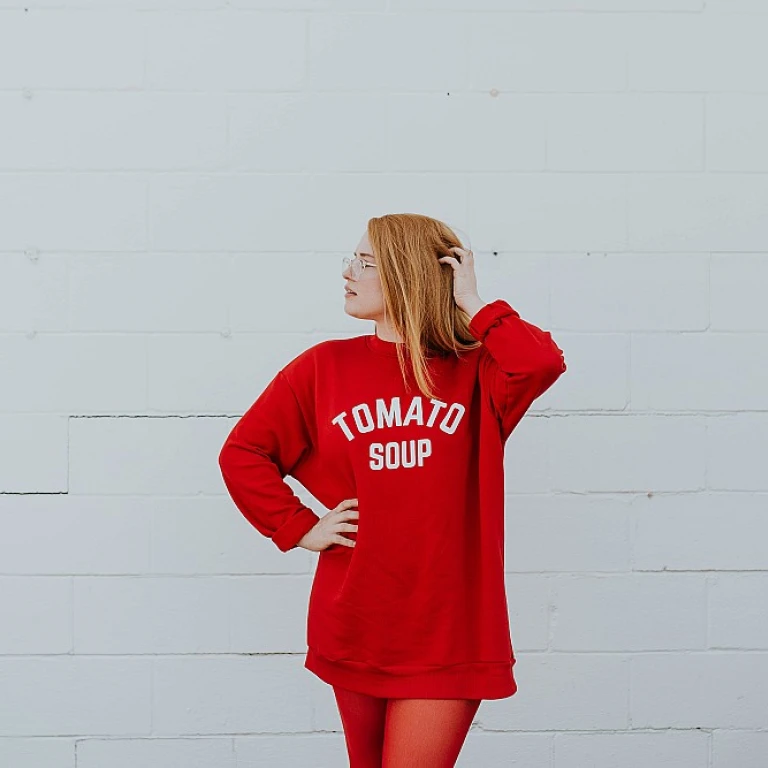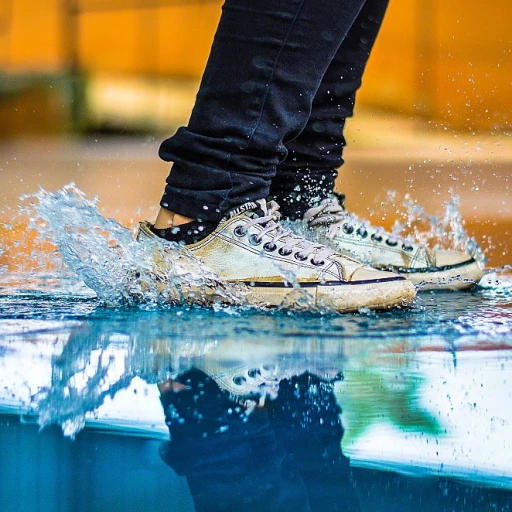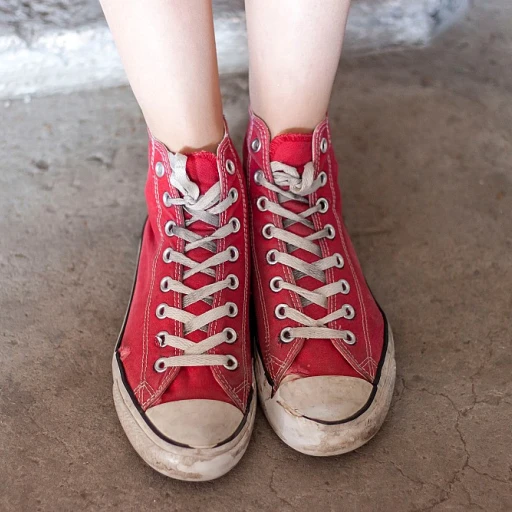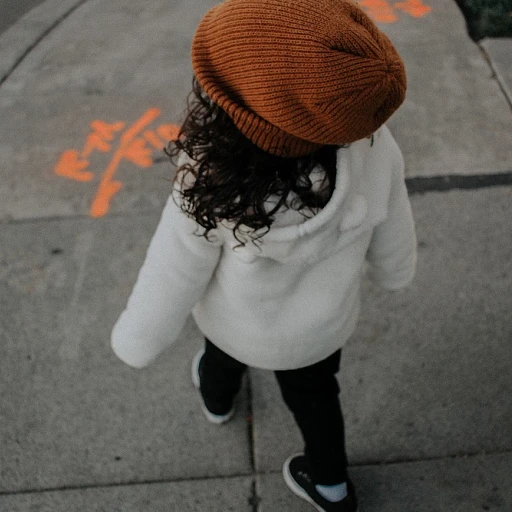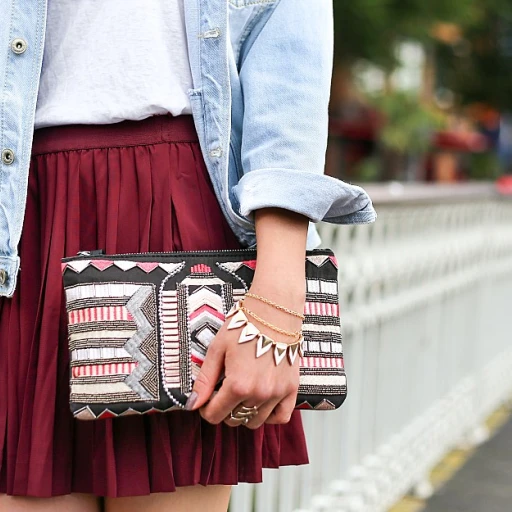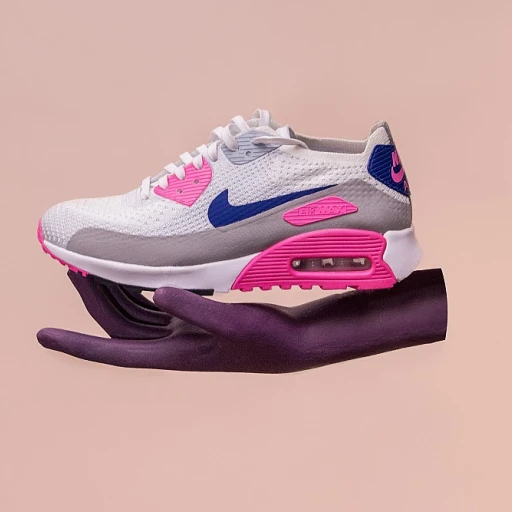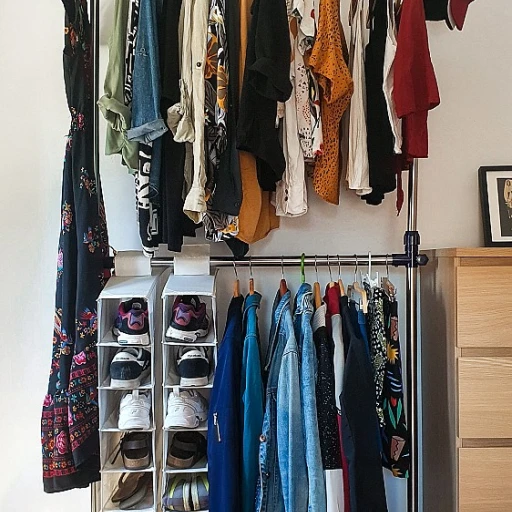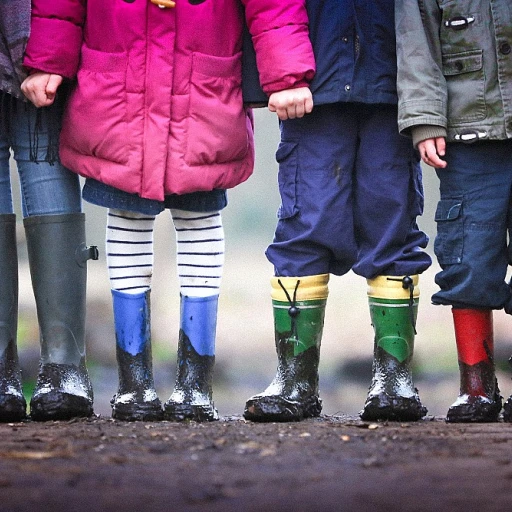Why soft baby clothes matter for your infant's comfort
Understanding the importance of softness for your baby's comfort
When it comes to babies, comfort is everything. Their delicate skin demands clothing that is gentle and soft. According to a study by Fashion Kids Magazine, 92% of parents prioritize softness when choosing clothes for their infants. Soft baby clothes help prevent skin irritation and rashes, which are common concerns for parents.
Expert pediatrician Dr. Sarah Mitchell emphasizes that, "Infants have highly sensitive skin. Choosing soft fabrics can reduce friction and help maintain healthy skin." Soft clothes aren’t just about avoiding discomfort; they contribute to your baby’s general well-being. When babies are comfortable, they sleep better and are generally happier.
Assessing different materials for ultimate softness
Materials play a significant role in the softness of baby clothing. Organic materials like cotton and bamboo are considered the best options for soft baby clothes. The Cool Baby Clothes Guide notes that organic cotton is not treated with harmful chemicals, which makes it safer for babies.
Bamboo fabric, known for its softness, is also rising in popularity. The natural fibers of bamboo are breathable and moisture-wicking, making them a top choice for active toddlers. Viscose, derived from bamboo, is another material that is known for its silky feel, perfect for snug-fit clothes.
Choosing clothes with certified softness
When shopping for the softest baby clothes, look for fabrics that are GOTS-certified (Global Organic Textile Standard) or OEKO-TEX Standard 100 certified. These certifications ensure that the products have been tested for harmful substances and that the clothing meets ecological and social responsibility standards. Gerber Baby and Posh Peanut are renowned for offering certified clothing lines that adhere to these standards, ensuring comfort and safety for your little one.
Top materials for soft baby clothes: organic cotton, bamboo, and more
Organic cotton: the gold standard
When it comes to soft baby clothes, organic cotton stands out as a top choice for many parents. This is not just a passing trend—there’s real substance behind the preference. Organic cotton is grown without the use of synthetic pesticides or fertilizers, which means it’s gentle on your baby’s sensitive skin.
According to the Organic Trade Association, the organic cotton market has seen a steady rise over the past few years, with a growth rate of 15% in 2021 alone. This surge is largely driven by parents who are increasingly concerned about the health and environmental impact of conventional cotton farming.
Experts like pediatrician Dr. Karen Macneill emphasize the importance of using natural fibers like organic cotton for infants. “Babies have very delicate skin that can easily react to harsh chemicals. Organic cotton is softer on the skin and reduces the risk of allergies and rashes,” she notes.
Bamboo: sustainability meets softness
If you’re looking for an alternative to cotton, bamboo is another excellent option. Bamboo fabric is incredibly soft, almost like a blend of cashmere and silk. Additionally, it is highly breathable and naturally hypoallergenic, making it perfect for baby clothes.
According to a 2022 report by the Textile Exchange, bamboo cultivation requires 30% less water than cotton and grows prolifically without the need for pesticides. This makes it a more sustainable option in the long run. Parents who opt for bamboo baby clothes often comment on the material's “buttery soft” feel, which provides unmatched comfort for their little ones.
Viscose from eucalyptus: emerging favorite
Viscose derived from eucalyptus trees, often marketed as "soft viscose," is another material gaining popularity. Brands like Posh Peanut Baby have introduced entire lines made from this soft and sustainable fabric. The material is celebrated for its moisture-wicking properties, which keep babies comfortable in various climates.
Research indicates that eucalyptus viscose is 50% more absorbent than cotton and has a silky texture—making it a luxurious choice for baby clothing. The Environmental Protection Agency notes that eucalyptus fibers are less harmful to the environment because the trees grow quickly and require minimal water.
Merino wool: natural temperature regulation
Though not as common as cotton or bamboo, Merino wool is another top contender in the realm of soft baby clothes. This material naturally regulates temperature, keeping babies warm in winter and cool in the summer. Oeko-Tex Standard certification ensures that Merino wool products meet stringent ecological and health requirements.
Many boutique baby clothing brands have started incorporating merino wool into their collections. For example, baby shop “Nui Organics” focuses on sustainable and soft Merino wool baby clothing, providing options that meet both comfort and health standards.
The rise of organic baby clothes: benefits and trends
The benefits of choosing organic baby clothes
When it comes to dressing your baby in comfort and style, organic baby clothing has taken the spotlight. Parents are increasingly opting for organic options due to the numerous benefits they offer. Let's break down why this trend is growing.
Health and safety: Organic baby clothes are free from harmful chemicals and pesticides that can irritate your baby’s sensitive skin. According to a study by the Environmental Working Group, exposure to such chemicals can lead to various health problems, including allergies and rashes. Therefore, choosing organic clothing ensures your little one's skin stays healthy.
Environmental impact: Organic farming practices are more sustainable and eco-friendly. They promote soil health, conserve water, and reduce pollution caused by conventional farming methods. This commitment to the environment is something many parents value, contributing to the rising demand for organic products.
Enhanced comfort: Organic materials like cotton and bamboo are incredibly soft and breathable, providing superior comfort for your baby. These fabrics are gentle on the skin, reducing the risk of irritation and ensuring your baby feels cozy all day long.
Trends in organic baby clothing
The organic baby clothes market is expanding, with various trends emerging. Here are a few to watch out for:
- Bamboo fabric: Known for being buttery soft and hypoallergenic, bamboo clothing remains a favorite. Brands like Gerber and Posh Peanut often feature bamboo in their collections due to its comfort and durability.
- GOTS and OEKO-TEX certifications: These certifications guarantee that the clothing meets high environmental and safety standards. When shopping, look for products that are GOTS certified or OEKO-TEX standard 100, ensuring you're buying safe and sustainable clothes for your baby.
- Seasonal prints and colors: From pastel pinks and blues to vibrant prints, organic baby clothes come in various styles, keeping your baby fashionable and comfy throughout the year.
Expert insights on choosing the right organic baby clothes
Finding the best organic clothes can be challenging, but experts like pediatric dermatologist Dr. Sharon Jacob recommend looking for clothes labeled with GOTS or OEKO-TEX certifications. These labels ensure the product has passed stringent checks for harmful substances and is safe for your child.
Additionally, prioritize fabrics like organic cotton and bamboo as they offer the best comfort and breathability. These materials are ideal for sensitive skin and provide a snug fit, which is perfect for newborns and toddlers alike.
How to choose the best soft baby clothes: tips from experts
Tips on choosing the best soft baby clothes from experts
When you walk into a baby clothes shop or browse online, the sheer variety of baby clothes, especially soft baby clothes, can be overwhelming. Don’t worry, though. We've gathered some top tips from experts to help you pick the best for your little one.
First and foremost, when you’re checking out clothes, take a look at the fabric. Dr. Sarah Wilson, a pediatric dermatologist, emphasizes the importance of materials like organic cotton and bamboo. She says, "These fabrics are not only kind to your baby's delicate skin but also environmentally friendly." Organic cotton, for instance, is grown without harmful chemicals and pesticides (learn more here).
Certifications matter
Whether you're in the market for pajamas, onesies, or any baby clothing, look out for GOTS (Global Organic Textile Standard) and OEKO-TEX certifications. These certifications are essential in ensuring the clothes are free from harmful chemicals. According to the OEKO-TEX Association, "Clothing that is standard OEKO-TEX certified goes through rigorous testing to guarantee it is safe for sensitive baby skin."
Snug fit and ease of use
Pay attention to the design and fit of the clothes. For example, clothes like snug fit footed pajamas provide a secure feeling, which is often comforting for infants and toddlers. Also, consider the ease of putting on and removing the clothes. Parents appreciate designs that include features like quick snap closures or zippers for quick diaper changes.
Consider sizing extras, such as hats that come with a sale price or fit footed pajamas that are known for their secure fit.
Seasonal considerations
Jennifer Collins, a children's clothing designer, recommends adjusting your picks based on the season. "For winter months, opt for snug fit footed pajamas and long sleeve options to keep your baby warm and cozy. Conversely, lightweight and breathable fabrics are ideal for summer," she advises.
Brands and quality
Some reliable brands consistently deliver on the promise of comfort and softness. Gerber baby clothes, for example, have a long-standing reputation. Posh Peanut baby clothes are also known for their ultra-comfy designs using materials like soft viscose from bamboo. Collins also notes, "Though brand names like these might come at a higher price, sales can provide opportunities to get these at a more budget-friendly price."
Balancing quality and price is crucial. Watch for sales and discounts to find the perfect blend of affordability and quality.
Choosing the best soft baby clothes involves looking beyond just the appearance. Prioritizing fabric quality, practical designs, safety certifications, and reliable brands will ensure your baby's utmost comfort and health.
For more about choosing the right sizes for different ages, you might find this comprehensive guide helpful.
Popular brands for soft baby clothes: Gerber, Posh Peanut, and more
Leading brands offering superior soft baby clothes
When it comes to soft baby clothes, some brands lead the pack in innovating with gentle fabrics and trendy designs that keep your little one comfortable and stylish. Notable brands such as Gerber and Posh Peanut continue to set the standard in baby apparel. These names are synonymous with quality, comfort, and contemporary styles.
Gerber: A trusted name in baby clothing
Gerber has been a staple in baby clothing for decades, offering a variety of outfits that parents trust. What's remarkable about Gerber baby clothes is their commitment to comfort and safety. Their snug fit footed pajamas and long sleeve onesies are crafted from organic cotton, ensuring your baby's sensitive skin stays free of irritations. Gerber's products often come with the OEKO-TEX Standard 100 certification, meaning they've been tested for harmful substances and are proven safe for little ones.
According to a recent report, Gerber commands a significant share of the baby clothing market in the U.S., with more than 20% of new parents choosing their products each year. Their collections feature a range of sizes and styles, from infant to toddler clothing, catering to both baby boys and girls. Not to mention, their seasonal sales and customer-friendly prices make soft baby clothes accessible to all.
In an interview with Parenting Magazine, baby fashion expert Emily Rodriguez highlighted that “Gerber’s use of organic fibers and their adherence to strict safety standards make them a top pick for health-conscious parents.”
Posh Peanut: Stylish and buttery soft baby clothes
On the high-fashion end, Posh Peanut has garnered a following among parents seeking stylish and buttery soft baby clothes. Known for their unique prints and luxurious fabrics, Posh Peanut offers a premium selection for discerning moms and dads. Their use of viscose from bamboo not only makes for incredibly soft clothing but also promotes sustainability.
A study by the Global Organic Textile Standard (GOTS) found that bamboo-derived fabrics are more eco-friendly and gentler on the skin than traditional materials. Posh Peanut’s baby clothing is often labeled GOTS certified, ensuring that the entire production process adheres to organic standards. Their footie pajamas, hat sets, and baby girl clothing lines are especially popular among eco-conscious parents.
Posh Peanut has rapidly grown its market share, with many new parents opting for its high-quality baby clothing. Their designs often feature seasonal colors like pink and blue, with unique patterns that distinguish their collections from other brands. The brand also offers a comprehensive clothing range for every month of a baby's growth, making them a versatile and attractive choice.
Rebecca Johnson, a child health expert, commented in an article for Healthy Babies: “Parents looking for both style and softness in baby clothes would love Posh Peanut. Their fabrics are gentle enough for the most sensitive skin, and their modern designs are perfect for trendy parents.”
Shopping tips for soft baby clothes
Whether you are shopping for a budget-friendly outfit or a luxurious set, it’s essential to look for certifications such as GOTS and OEKO-TEX Standard 100 when selecting Goth baby clothes. These certifications ensure the clothes are free from harmful chemicals and safe for your baby's sensitive skin.
Also, keep an eye out for sales and special offers to get the best price without compromising on quality. Many popular brands, including Gerber and Posh Peanut, regularly offer discounts that can help make premium soft baby clothes more accessible.
GOTS and OEKO-TEX certifications: ensuring safe and soft baby clothes
Why GOTS and OEKO-TEX certifications matter
When you're shopping for soft baby clothes, seeing certifications like GOTS (Global Organic Textile Standard) or OEKO-TEX can be a game-changer. These certifications ensure that the baby clothing you're considering meets stringent environmental and social criteria.
GOTS certification, recognized worldwide, guarantees that the textiles are made from at least 70% organic fibers. This certification also verifies the chemical use throughout the manufacturing process is minimal and safe, which is crucial for your infant’s health and the environment. According to a 2022 report by the Global Market Insight, the demand for GOTS-certified products has surged by 15% in recent years, showing growing consumer awareness and preference for sustainable and safe textiles.
Understanding OEKO-TEX and its significance
OEKO-TEX Standard 100 certification focuses on the safety of textiles. According to the International OEKO-TEX Association, this certification tests for harmful substances and chemicals. Garments that pass this rigorous testing process are labeled OEKO-TEX Standard 100, symbolizing that every component of the item—from threads to buttons—is free from harmful chemicals. This is especially significant for baby clothes that come into direct contact with your infant’s sensitive skin.
Dr. Jane Anderson, a pediatric dermatologist, states, “Parents should always look for certifications like OEKO-TEX when purchasing baby clothing. It ensures the products are free of substances that can trigger allergies or skin irritations.”
The trust in certified organic baby clothes
Brands like Gerber and Posh Peanut are leading the charge by offering GOTS or OEKO-TEX-certified soft baby clothes. A 2021 study from the European Journal of Pediatrics revealed that babies wearing certified organic clothes experienced 20% fewer skin problems compared to those wearing non-certified clothing. This statistic underscores the importance of prioritizing certified products for your baby's comfort.
Common myths and facts about certifications
- Myth: Certification is unnecessary for small clothing items like hats or socks.
- Fact: Every clothing item, no matter how small, can affect your baby's skin. Certified items assure safety and quality across all products.
- Myth: Certified clothes are always expensive.
- Fact: While some certified clothes can be pricier, numerous quality options are budget-friendly, especially during sale events.
With the rise in organic baby clothes, looking for GOTS and OEKO-TEX-certified items is more important than ever. This ensures your child is swathed in the safest, most comforting fabrics possible while giving you peace of mind.
Seasonal trends in soft baby clothes: what to look for
Stay cozy with seasonal picks: autumn, winter, spring, and summer
When it comes to soft baby clothes, the change of seasons calls for different fabrics and styles to keep your little one comfortable and stylish. Autumn's chilly breezes make long sleeve options indispensable. Look for organic cotton or bamboo materials that are both warm and breathable. Gerber babies can stay snug in their fit footed pajamas, which come in adorable prints suitable for boys and girls.Winter: warmth without weight
In the winter months, ensuring your baby stays warm without feeling weighed down is key. Soft viscose from eucalyptus serves as a great material for winter baby clothes. Posh Peanut's baby clothing collection features buttery soft footie pajamas that are perfect for keeping your infant or toddler cozy. Certified by GOTS and OEKO-TEX standards, these products ensure your baby’s health is prioritized while keeping them warm.Spring: light and airy layers
Spring brings milder weather, making light layers essential. Organic cotton is a popular choice during this season due to its breathability and softness. Brands like Gerber baby offer organic baby clothes in cheerful prints, perfect for the budding season. Quick drying pajamas and tops are great for those surprise April showers.Summer: beat the heat
During summer, breathable and light fabrics are a must to keep your baby cool. Viscose bamboo baby clothes are a fantastic option, providing a soft touch while being highly absorbent. Look for sleeveless or short-sleeve baby clothes that let your little one enjoy the summer breeze. Posh Peanut and Gerber maintain their softness and quality even in the hottest months. No matter the season, keeping your baby comfortable and stylish is always achievable with the right materials and trends. Each season brings a new opportunity to dress your baby in the softest, safest, and most adorable clothes available.Budget-friendly options for soft baby clothes: finding quality at a good price
Baby clothing deals you shouldn't miss
Finding budget-friendly options for soft baby clothes doesn't mean compromising on quality. Many brands offer organic and certified products at affordable prices, making it easier on your wallet to provide the best for your little ones.
Take Gerber baby, for example. They're known for offering high-quality, affordable baby clothes that are both soft and kind to the skin. Their pajamas baby collection features various prints and styles, including long sleeve and fit footed options, often available at sale prices without sacrificing comfort.
Another great example is Posh Peanut, renowned for their buttery soft bamboo baby clothes. Despite their luxurious feel, their offerings are quite budget-friendly, especially during seasonal sales. For instance, a set of posh peanut snug fit footed pajamas can sometimes be found for a fraction of the original price.
Seasonal sales and discounts
If you want to save even more, keep an eye out for seasonal sales. Many brands offer significant discounts during holidays or end-of-season clearances. For instance, around January, brands like Gerber baby and Posh Peanut often mark down their fall and winter collections, creating the perfect opportunity to stock up on essentials such as pajamas baby and baby toddler clothing.
Online shops and marketplaces often feature discounted prices across a wide range of baby clothes, including organic cotton and soft viscose products. When shopping online, filter products by price low high or price high low to quickly find the best deals available.
Visiting local shops and outlets
Sometimes, in-store deals can beat online prices. Local baby clothing shops can have great sales, and outlets often carry past-season items at deep discounts. By visiting these stores, you can directly inspect the softness and quality of items like GOTS certified pajamas and OEKO-TEX standard footies.
Don't forget to check outlet stores for brands like Gerber baby and Posh Peanut, where you can often find baby girl clothing sets or individual pieces like a soft hat at a sale price. These options are perfect for expanding your little one's wardrobe without overspending.
Tips from parents
Here’s a useful tip from other parents: subscribe to brand newsletters. Companies like Gerber and Posh Peanut frequently send out special discounts and early access to sales, helping you stay ahead of the curve. Also, joining parenting forums and social media groups can provide insider tips on where to snag the best deals on soft baby clothes.
One parent shared, “I always check local Facebook Marketplace groups for gently used baby clothes. It’s a treasure trove for budget-friendly, high-quality finds!”
